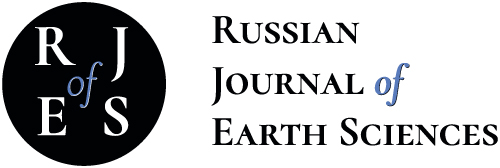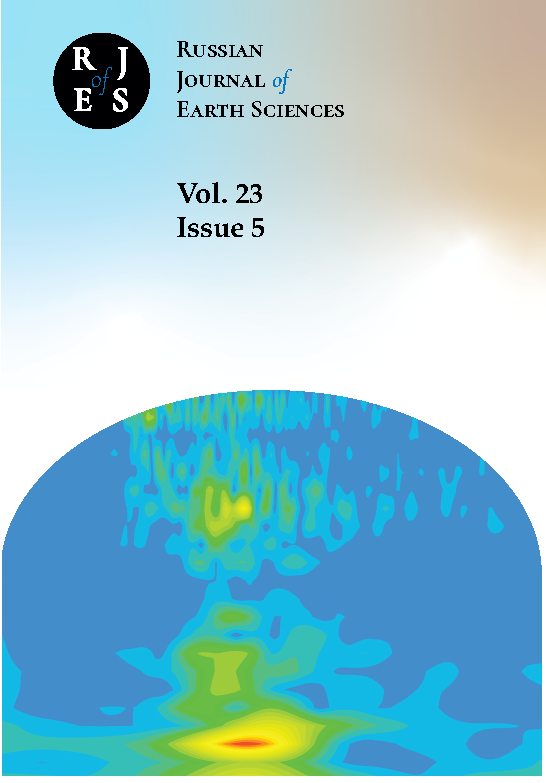North Caucasus Center for Mathematical Research
Russian Federation
Abkhaz State University
Russian Federation
Abkhaz State University
North Caucasus Center for Mathematical Research
UDC 55
CSCSTI 37.00
CSCSTI 38.00
BISAC SCI SCIENCE
This paper analyzes the surface air temperature data for the city of Sukhum for the period 1961–2022. These values are presented as time series of average annual temperatures. As a result, we get 2 main components: trend, spectrum (including cycles). In general, the average annual temperature has a predominantly positive trend, i. e. over the entire period the temperature has increased by 1.31 degrees, which may occur against the background of global warming. Accordingly, another task of the current work was to identify cyclic components and determine their physical nature. A quasi-two-year, 5–6-year, solar activity cycle and a multi-year cycle (2–3 decades) are observed
surface air temperature, time series, trend, moving average, average annual temperature, cycles, solar activity, spectral analysis
1. Afanasyev, I. S., A. R. Komarova, R. G. Zakinyan, and A. I. Shevchenko (2022), Greenhouse effect, in Problems of Atmospheric Physics, Climatology and Environmental Monitoring: Reports of the IV International Scientific Conference (Stavropol, May 23-25, 2022), p. 256, North-Caucasus Federal University (in Russian).
2. Akhsalba, A. K., Y. A. Ekba, and S. I. Marandidi (2013), The influence of gas composition of atmospheric air of the seashore of Abkhazia, Izvestiya SFEDU. Engineering sciences, 9(146), 30-34 (in Russian).
3. Ekba, Y. A., A. K. Akhsalba, L. V. Khintuba, and K. A. Nachkebia (2020), Variability of major climate-forming factors in the territory of Abkhazia for the global warming period, Bulletin of the Academy of Sciences of Abkhazia. A series of natural sciences, pp. 172-182 (in Russian).
4. Eliseev, A. V., and I. I. Mokhov (2008), Influence of volcanic activity on climate change in the past several centuries: Assessments with a climate model of intermediate complexity, Izvestiya, Atmospheric and Oceanic Physics, 44(6), 723-736 (in Russian). EDN: https://elibrary.ru/JUJYJN
5. Kendall, M., and A. Stuart (1976), Multivariate statistical analysis and time series, 736 pp., Nauka, Moscow (in Russian).
6. Khintuba, L. V., and Y. V. Ekba (2018), The impact of volcanoes on the climate, in International Scientific and Practical Conference "Open Physical Readings" Abstracts of Reports Youth Section, pp. 29-30, LNU named after V. Dahl, Lugansk (in Russian).
7. Melnikova, M., A. Perdero, and E. Zalyubovsky (2020), Global climate threat and Russia’s economy in search of a special path, 69 pp., Energy Center of the Moscow School of Management SKOLKOVO, Moscow (in Russian).
8. Semenov, S. M., and I. O. Popov (2011), Comparative estimates of influence of changes in carbon dioxide, methane, nitrous oxide, and water vapor concentrations on radiation-equilibrium temperature of Earth’s surface, Russian Meteorology and Hydrology, (8), 33-34 (in Russian). DOI: https://doi.org/10.3103/S1068373911080036; EDN: https://elibrary.ru/PEAPEB
9. Tarasov, B. G. (2004), On the nature of cycles of geodynamic activity and the method of their forecast, Bulletin of the Kuzbass State Technical University, Bulletin of the Kuzbass State Technical University, (6-2(44)), 3-13 (in Russian). EDN: https://elibrary.ru/PWLUPB
10. Vityazev, V. V. (2001), Wavelet analysis of time series, 58 pp., St. Petersburg State University, St. Petersburg (in Russian).















